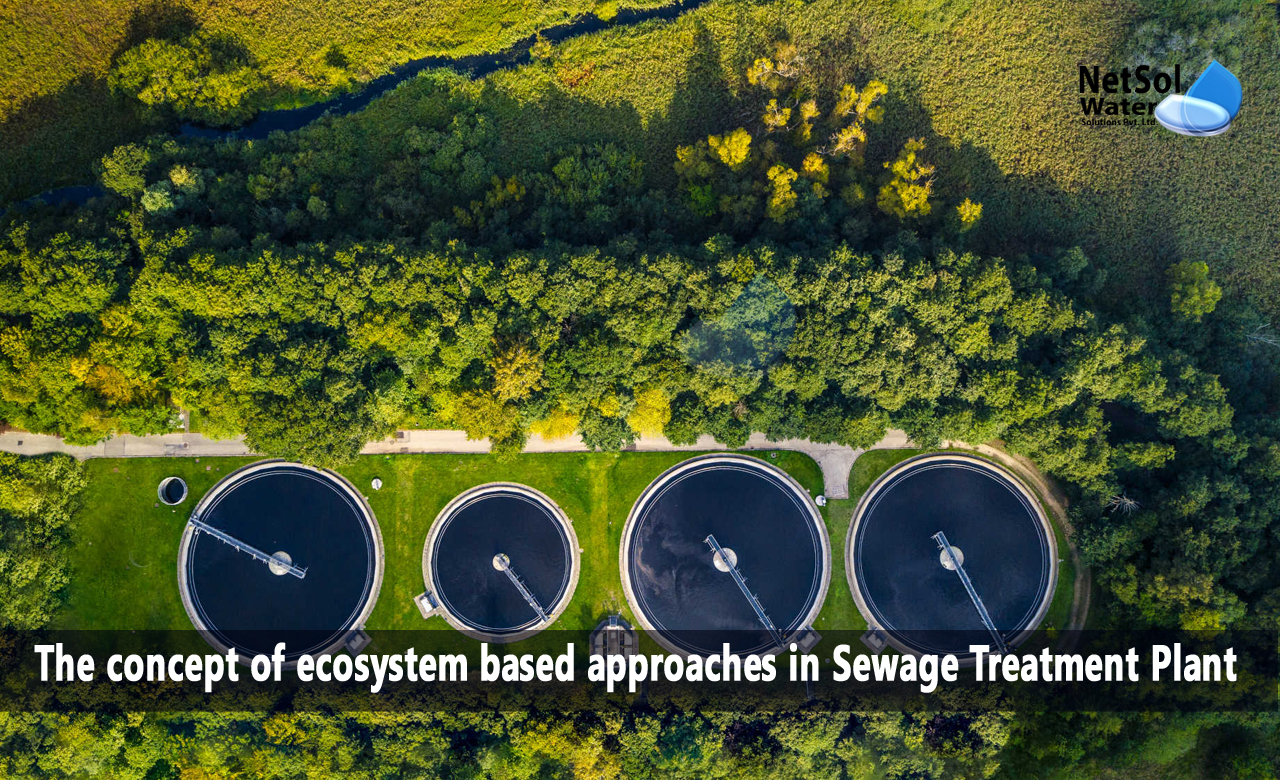What is the concept of ecosystem-based approaches in STP Plant?
Sewage treatment plants (STPs) have traditionally relied on conventional treatment methods to purify wastewater and protect public health. However, as we strive for sustainable and environmentally friendly solutions, there is a growing recognition of the benefits of incorporating ecosystem-based approaches into sewage treatment processes. By harnessing the power of natural systems, STPs can enhance water treatment efficiency, reduce energy consumption, and promote the preservation of ecosystems.
This blog explores the concept of ecosystem-based approaches in sewage treatment and highlights their potential in creating a more sustainable future.
Understanding Ecosystem-Based Approaches
Ecosystem-based approaches in sewage treatment involve emulating and integrating natural processes and systems to enhance the efficiency and effectiveness of water treatment. Instead of relying solely on mechanical and chemical treatments, these approaches utilize natural systems and biological processes to remove contaminants and restore the health of water bodies.
Benefits of Ecosystem-Based Approaches
- Enhanced Water Treatment Efficiency: Ecosystem-based approaches can improve the removal of contaminants from wastewater, including organic matter, nutrients, and pathogens. Natural systems such as wetlands, constructed wetlands, and biofiltration systems have the inherent ability to filter and degrade pollutants, resulting in cleaner water outputs.
- Reduced Energy Consumption: Conventional sewage treatment methods often require significant energy inputs for pumping, aeration, and chemical dosing. By incorporating natural systems, STPs can reduce energy consumption and operational costs. Natural processes such as microbial activity, plant uptake, and gravity-driven flow can perform treatment functions with minimal energy requirements.
- Nutrient Recovery and Recycling: Ecosystem-based approaches facilitate the recovery and recycling of nutrients from wastewater. Nutrient-rich effluents can be directed to constructed wetlands or algae cultivation systems, where plants or algae uptake these nutrients for growth. This process not only reduces the release of excess nutrients into receiving water bodies but also provides opportunities for resource recovery in the form of fertilizers or biofuels.
- Ecological Restoration and Biodiversity Conservation: Ecosystem-based approaches support the restoration and conservation of natural habitats. Constructed wetlands and riparian buffers create valuable ecosystems that provide habitat for diverse plant and animal species. These habitats promote biodiversity, contribute to ecological balance, and enhance the overall resilience of the ecosystem.
- Climate Change Resilience: Ecosystem-based approaches in sewage treatment can contribute to climate change resilience by mitigating the impacts of extreme weather events and sea-level rise. Wetlands, for example, act as natural buffers against flooding, absorb carbon dioxide, and help regulate water flow and quality.
Examples of Ecosystem-Based Approaches
- Constructed Wetlands: These are engineered systems that mimic natural wetlands' functions, utilizing wetland plants, soil, and microorganisms to treat wastewater. Constructed wetlands effectively remove pollutants through processes such as filtration, sedimentation, and microbial degradation.
- Natural Filtration Systems: Forested areas, riparian buffers, and vegetated filter strips act as natural filtration systems by removing sediments, nutrients, and contaminants from wastewater through vegetation uptake and soil filtration.
- Algal Bioreactors: Algal bioreactors utilize algae to treat wastewater by capturing nutrients and carbon dioxide during photosynthesis. This process not only removes pollutants but also enables the production of biomass for various applications, including biofuel production.
- Nature-Based Solutions: Nature-based solutions involve the use of natural features and processes to manage wastewater. Examples include green roofs, permeable pavements, and rain gardens, which help capture, treat, and infiltrate stormwater runoff.
Conclusion
The incorporation of ecosystem-based approaches in sewage treatment plants presents a promising avenue for enhancing water treatment efficiency, reducing energy consumption, and promoting environmental sustainability. By harnessing the power of natural systems, STPs can contribute to ecological restoration, nutrient recovery, and climate change resilience. It is crucial to further explore and implement these approaches, leveraging the potential of nature-based solutions to create a harmonious relationship between wastewater treatment and the preservation of ecosystems. Through such innovative and sustainable practices, we can move towards a future where sewage treatment not only safeguards public health but also nurtures the health of our planet.
Netsol Water is Greater Noida-based leading water & wastewater treatment plant manufacturer. We are industry's most demanding company based on client review and work quality. We are known as best commercial RO plant manufacturers, industrial RO plant manufacturer, sewage treatment plant manufacturer, Water Softener Plant Manufacturers and effluent treatment plant manufacturers. Apart from this 24x7 customer support is our USP. Call on +91-9650608473, or write us at enquiry@netsolwater.com for any support, inquiry or product-purchase related query.



